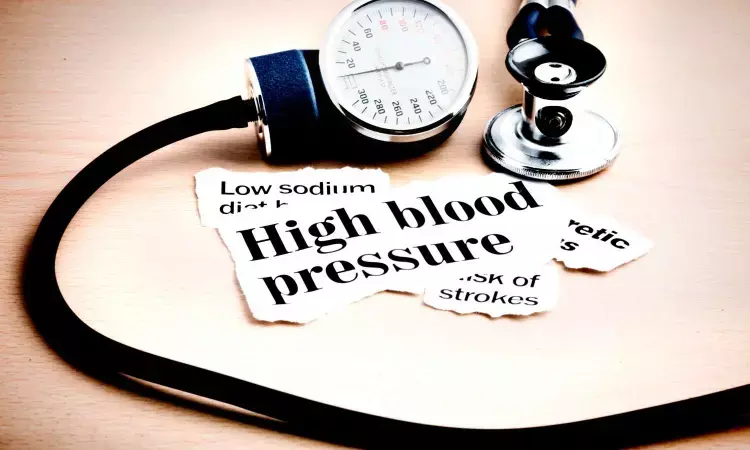- Home
- Medical news & Guidelines
- Anesthesiology
- Cardiology and CTVS
- Critical Care
- Dentistry
- Dermatology
- Diabetes and Endocrinology
- ENT
- Gastroenterology
- Medicine
- Nephrology
- Neurology
- Obstretics-Gynaecology
- Oncology
- Ophthalmology
- Orthopaedics
- Pediatrics-Neonatology
- Psychiatry
- Pulmonology
- Radiology
- Surgery
- Urology
- Laboratory Medicine
- Diet
- Nursing
- Paramedical
- Physiotherapy
- Health news
- Fact Check
- Bone Health Fact Check
- Brain Health Fact Check
- Cancer Related Fact Check
- Child Care Fact Check
- Dental and oral health fact check
- Diabetes and metabolic health fact check
- Diet and Nutrition Fact Check
- Eye and ENT Care Fact Check
- Fitness fact check
- Gut health fact check
- Heart health fact check
- Kidney health fact check
- Medical education fact check
- Men's health fact check
- Respiratory fact check
- Skin and hair care fact check
- Vaccine and Immunization fact check
- Women's health fact check
- AYUSH
- State News
- Andaman and Nicobar Islands
- Andhra Pradesh
- Arunachal Pradesh
- Assam
- Bihar
- Chandigarh
- Chattisgarh
- Dadra and Nagar Haveli
- Daman and Diu
- Delhi
- Goa
- Gujarat
- Haryana
- Himachal Pradesh
- Jammu & Kashmir
- Jharkhand
- Karnataka
- Kerala
- Ladakh
- Lakshadweep
- Madhya Pradesh
- Maharashtra
- Manipur
- Meghalaya
- Mizoram
- Nagaland
- Odisha
- Puducherry
- Punjab
- Rajasthan
- Sikkim
- Tamil Nadu
- Telangana
- Tripura
- Uttar Pradesh
- Uttrakhand
- West Bengal
- Medical Education
- Industry
High BP in males in late adolescence may increase risk of major CV events later in life

A study of more than one million Swedish men followed for up to 50 years found that higher blood pressure (BP) at age 18 was associated with an increased risk for major cardiovascular events later in life, including heart failure, heart attacks, strokes, and mortality. The risk for major cardiac events became elevated beginning at a BP of 120/80 mm Hg. According to the researchers, early intervention for hypertension may be critical to reducing later cardiovascular events. The findings are published in Annals of Internal Medicine.
Hypertension is the leading cause of cardiovascular disease (CVD) and premature death in the world. The association between BP level and cardiovascular outcomes has been extensively studied in middle-aged and older persons, but not enough is known about the association between BP in adolescence and future cardiovascular events.
Researchers from Umeå University and Uppsala University studied 1,366,519 men enlisted in the Swedish military between 1969 and 1997 to measure the association between high blood pressure in adolescence and risk for cardiovascular events in adulthood. The participants’ baseline BP was measured during conscription. Using the American College of Cardiology/American Heart Association guidelines for classifying BP elevation, the baseline BP was classified as elevated at 120 to 129/<80 mm Hg. Based on these measurements, 28.8 percent of participants had an elevated baseline BP and 53.7 percent had a hypertensive baseline BP.
Over up to 50 years follow up, the researchers found a substantial and gradual absolute risk increase across BP categories for all major cardiovascular outcomes in adulthood. One in 10 adolescents with combined stage 2 hypertension would have a major cardiovascular event before retirement, whereas those with BP below 120/80mmHg would not. According to the authors, the results of this study highlight the possibility of identifying persons with increased cardiovascular risk in late adolescence, enabling early intervention to prevent CVD. This possibility should encourage practitioners to measure BP in adolescents, which is not done routinely.
Reference:
Helene Rietz, Johanna Pennlert, Peter Nordström, and Mattias Brunström, Helene Rietz, MD, Johanna Pennlert, MD, PhD, Peter Nordström, MD, PhD, and Mattias Brunström, https://doi.org/10.7326/M23-0112.
Dr Kamal Kant Kohli-MBBS, DTCD- a chest specialist with more than 30 years of practice and a flair for writing clinical articles, Dr Kamal Kant Kohli joined Medical Dialogues as a Chief Editor of Medical News. Besides writing articles, as an editor, he proofreads and verifies all the medical content published on Medical Dialogues including those coming from journals, studies,medical conferences,guidelines etc. Email: drkohli@medicaldialogues.in. Contact no. 011-43720751


